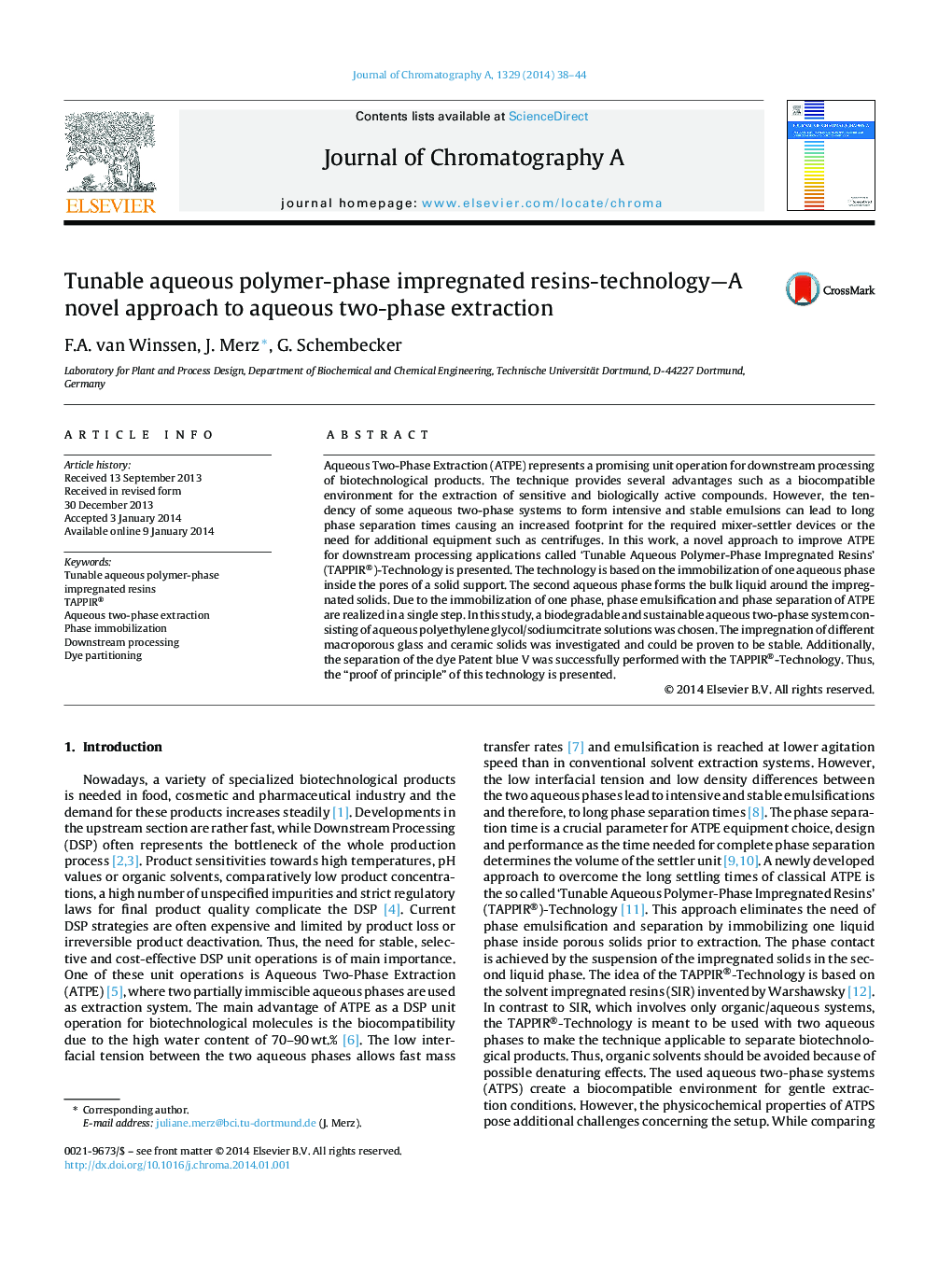| Article ID | Journal | Published Year | Pages | File Type |
|---|---|---|---|---|
| 7613746 | Journal of Chromatography A | 2014 | 7 Pages |
Abstract
Aqueous Two-Phase Extraction (ATPE) represents a promising unit operation for downstream processing of biotechnological products. The technique provides several advantages such as a biocompatible environment for the extraction of sensitive and biologically active compounds. However, the tendency of some aqueous two-phase systems to form intensive and stable emulsions can lead to long phase separation times causing an increased footprint for the required mixer-settler devices or the need for additional equipment such as centrifuges. In this work, a novel approach to improve ATPE for downstream processing applications called 'Tunable Aqueous Polymer-Phase Impregnated Resins' (TAPPIR®)-Technology is presented. The technology is based on the immobilization of one aqueous phase inside the pores of a solid support. The second aqueous phase forms the bulk liquid around the impregnated solids. Due to the immobilization of one phase, phase emulsification and phase separation of ATPE are realized in a single step. In this study, a biodegradable and sustainable aqueous two-phase system consisting of aqueous polyethylene glycol/sodiumcitrate solutions was chosen. The impregnation of different macroporous glass and ceramic solids was investigated and could be proven to be stable. Additionally, the separation of the dye Patent blue V was successfully performed with the TAPPIR®-Technology. Thus, the “proof of principle” of this technology is presented.
Related Topics
Physical Sciences and Engineering
Chemistry
Analytical Chemistry
Authors
F.A. van Winssen, J. Merz, G. Schembecker,
